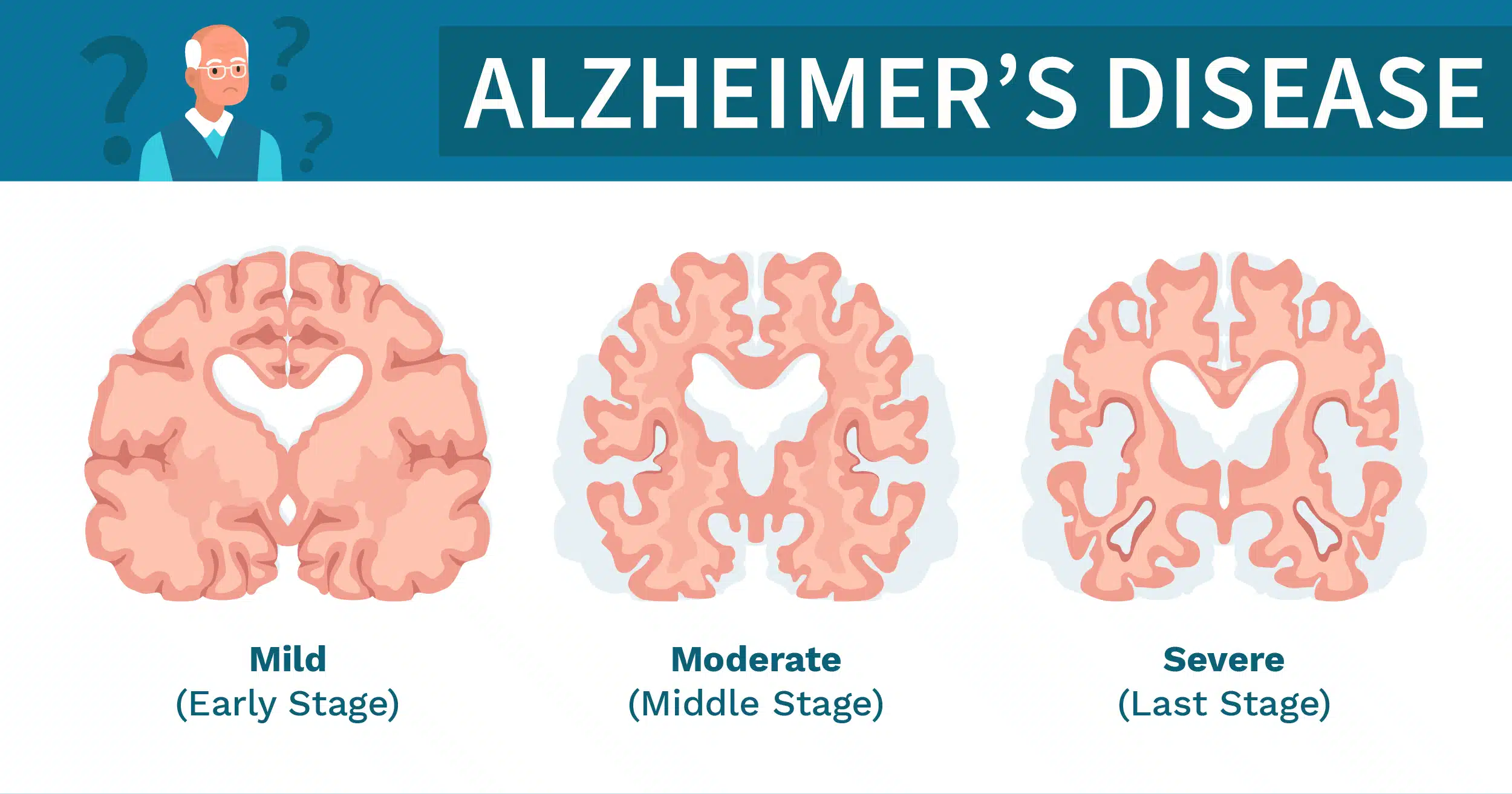
Alzheimer’s disease is a complex and progressive neurological disorder that leads to the gradual decline of cognitive functions, memory, and the ability to perform everyday activities. Understanding the different stages of Alzheimer’s is essential for patients, caregivers, and healthcare professionals to manage the disease effectively and provide appropriate care at each phase. This blog will explore the stages of Alzheimer’s progression, detailing the symptoms and challenges associated with each stage.
Overview of Alzheimer’s Disease Progression
Alzheimer’s disease typically progresses through three main stages: early (mild), middle (moderate), and late (severe). Each stage presents distinct symptoms and challenges, which gradually worsen over time. The rate of progression can vary widely among individuals, influenced by factors such as age, genetics, and overall health.
Early-stage (Mild) Alzheimer’s Disease
The early stage of Alzheimer’s disease can last for several years and is often characterized by subtle changes that may be mistaken for normal aging. During this stage, individuals are generally able to function independently with minimal assistance, but they may start experiencing difficulties in certain areas.
Key Symptoms:
- Memory Loss: Difficulty remembering recent events, conversations, and appointments. Long-term memories usually remain intact.
- Confusion: Problems with planning, organizing, and following instructions.
- Language Difficulties: Struggling to find the right words, repeating questions, or having trouble following conversations.
- Disorientation: Getting lost in familiar places or misplacing items.
- Mood and Personality Changes: Increased anxiety, depression, irritability, or apathy.
Challenges and Care Strategies:
- Diagnosis: Early-stage Alzheimer’s can be challenging to diagnose as symptoms are often subtle. Comprehensive medical evaluations, including cognitive tests and brain imaging, are essential.
- Daily Living: Encourage the use of memory aids, such as calendars, notes, and electronic reminders, to help manage daily tasks.
- Safety: Implement safety measures at home, such as labeling rooms and securing dangerous items, to prevent accidents.
- Emotional Support: Provide reassurance and support to help manage anxiety and depression. Encourage participation in social activities to maintain engagement.
Middle-Stage (Moderate) Alzheimer’s Disease
The middle stage of Alzheimer’s disease is typically the longest, lasting several years. During this stage, cognitive decline becomes more pronounced, and individuals require increasing levels of assistance with daily activities.
Key Symptoms:
- Worsening Memory Loss: Difficulty remembering personal history, recognizing friends and family, and recalling the date or season.
- Increased Confusion: Greater difficulty with complex tasks, such as managing finances or following recipes.
- Language and Communication: Trouble with reading, writing, and understanding spoken language. Frequent repetition of questions and statements.
- Behavioral Changes: Increased irritability, agitation, aggression, and mood swings. Wandering and getting lost are common.
- Sleep Disturbances: Changes in sleep patterns, including insomnia or excessive sleepiness.
- Physical Changes: Decline in motor skills, coordination, and balance.
Challenges and Care Strategies:
- Daily Living: Provide step-by-step instructions for tasks and simplify routines. Assist with personal care, such as bathing, dressing, and grooming.
- Behavioral Management: Use calming techniques to address agitation and aggression. Establish a consistent daily routine to reduce confusion and anxiety.
- Safety: Supervise activities to prevent wandering and ensure a safe environment. Consider using GPS devices for tracking if wandering occurs.
- Health Monitoring: Regularly monitor for other health issues, such as infections or pain, which can exacerbate symptoms.
- Caregiver Support: Caregivers should seek support through respite care, support groups, and professional counseling to manage stress and avoid burnout.
Late-Stage (Severe) Alzheimer’s Disease
In the late stage of Alzheimer’s disease, individuals experience severe cognitive and physical decline. They become entirely dependent on others for care and require round-the-clock assistance.
Key Symptoms:
- Severe Memory Loss: Inability to recognize close family members, friends, or even themselves. Little to no awareness of recent events or surroundings.
- Communication Difficulties: Loss of verbal communication skills. Individuals may rely on nonverbal cues, such as facial expressions and gestures.
- Loss of Physical Abilities: Significant decline in motor skills, including the ability to walk, sit, or hold up their head. Eventually, individuals may become bedridden.
- Complete Dependency: Total reliance on caregivers for personal care, including eating, dressing, bathing, and toileting.
- Increased Vulnerability: Higher susceptibility to infections, such as pneumonia, and other health complications due to immobility and weakened immune system.
Challenges and Care Strategies:
- Comfort and Dignity: Focus on providing comfort and maintaining the individual’s dignity. Use gentle touch and soothing words to communicate care and affection.
- Nutrition and Hydration: Ensure adequate nutrition and hydration, which may require assistance with feeding or using adaptive utensils. Monitor for signs of swallowing difficulties.
- Skin Care: Regularly change positions to prevent pressure ulcers and ensure good skin care.
- Pain Management: Be vigilant for signs of pain or discomfort, as individuals may not be able to express it verbally. Consult healthcare professionals for appropriate pain management.
- Palliative Care: Consider palliative care services to address the individual’s physical, emotional, and spiritual needs. Hospice care may be appropriate in the final stages.
Alzheimer’s disease progresses through distinct stages, each with unique challenges and care needs. Understanding these stages enables caregivers, healthcare professionals, and families to provide appropriate support and interventions, enhancing the quality of life for those affected.
At Shinon Healthcare, we are dedicated to supporting you through every stage of Alzheimer’s progression. Our experts offer comprehensive care, personalized treatment plans, and compassionate support to help manage symptoms effectively. Trust Shinon Healthcare to be your partner in navigating Alzheimer’s with dignity and compassion.